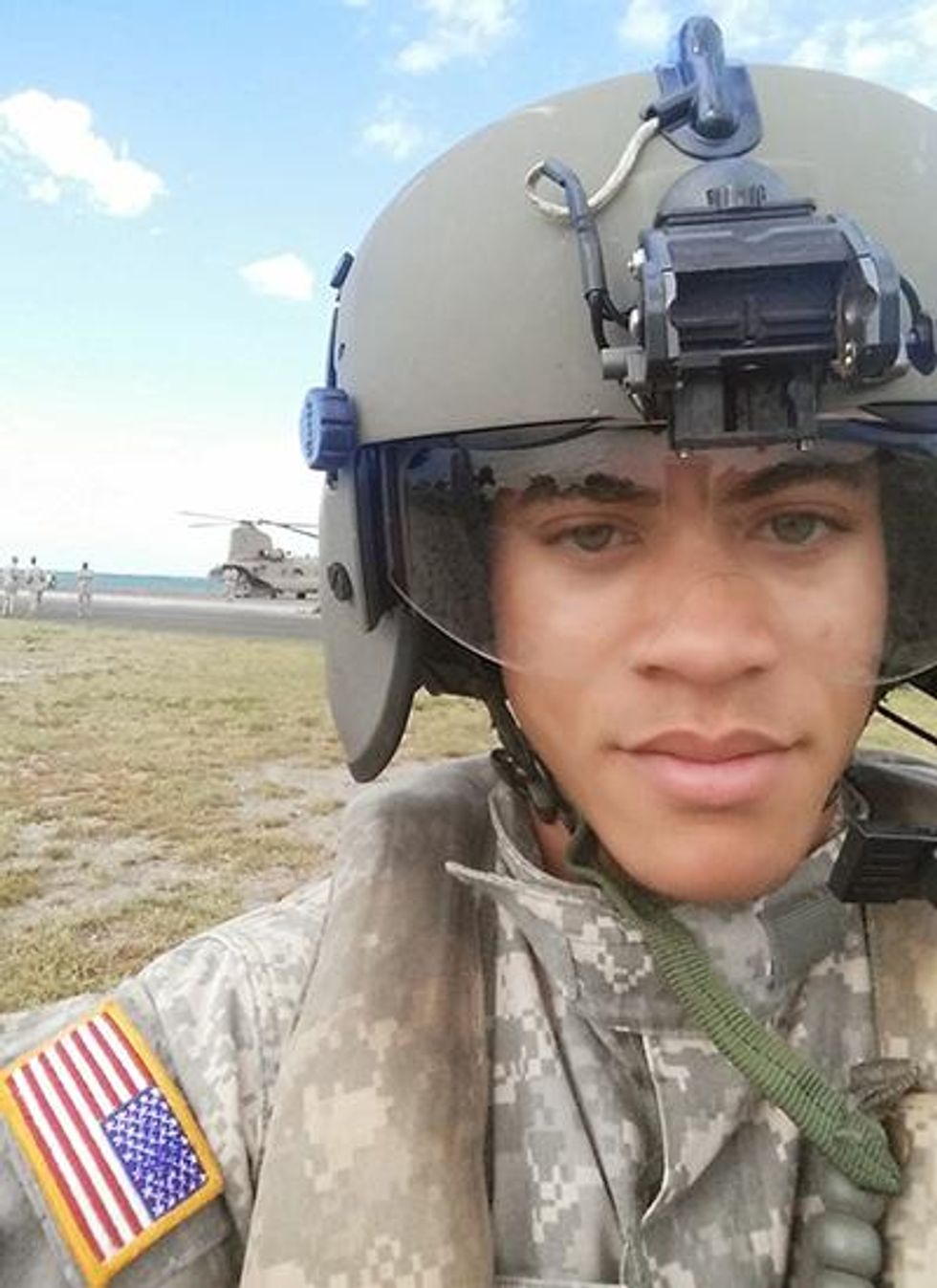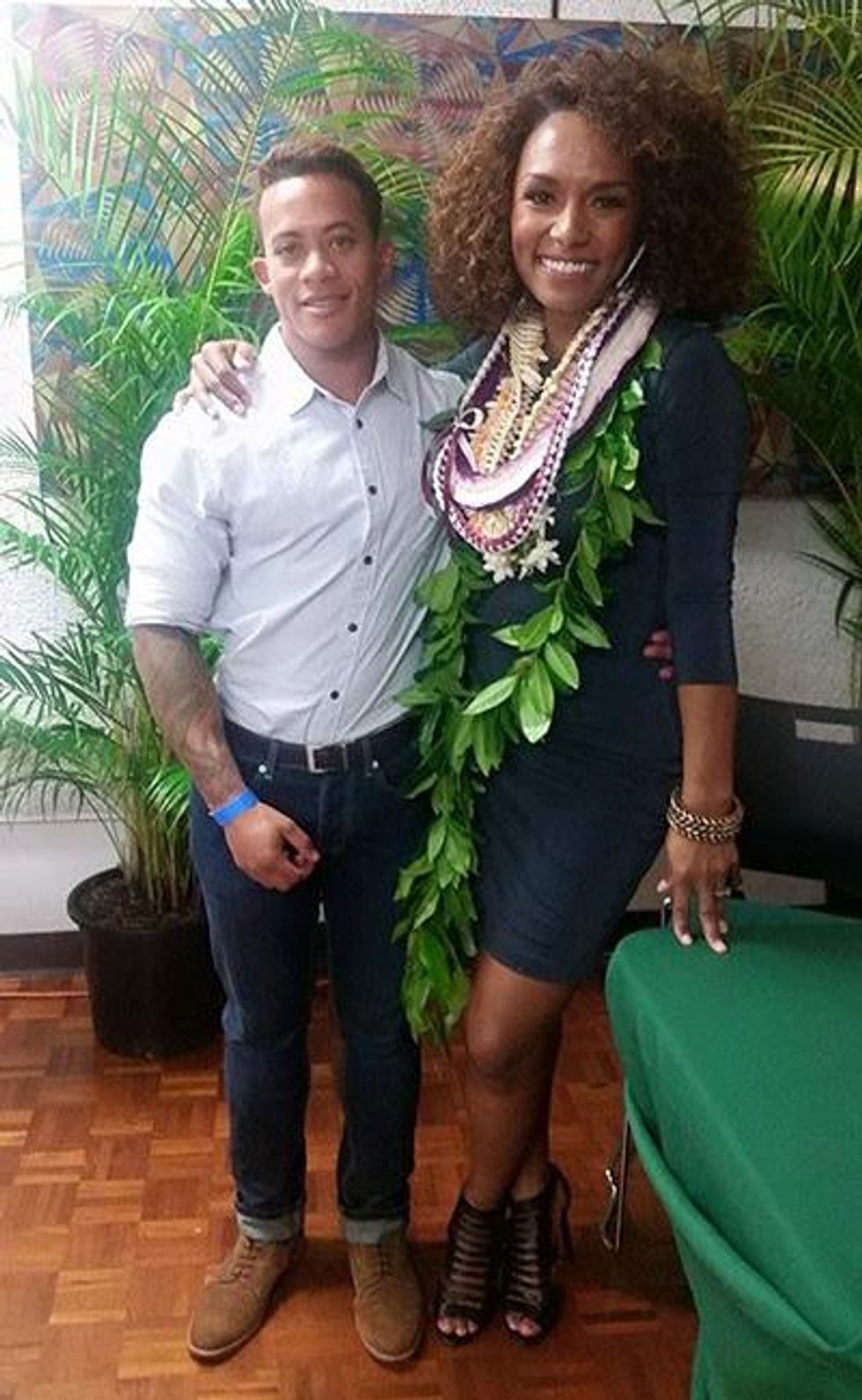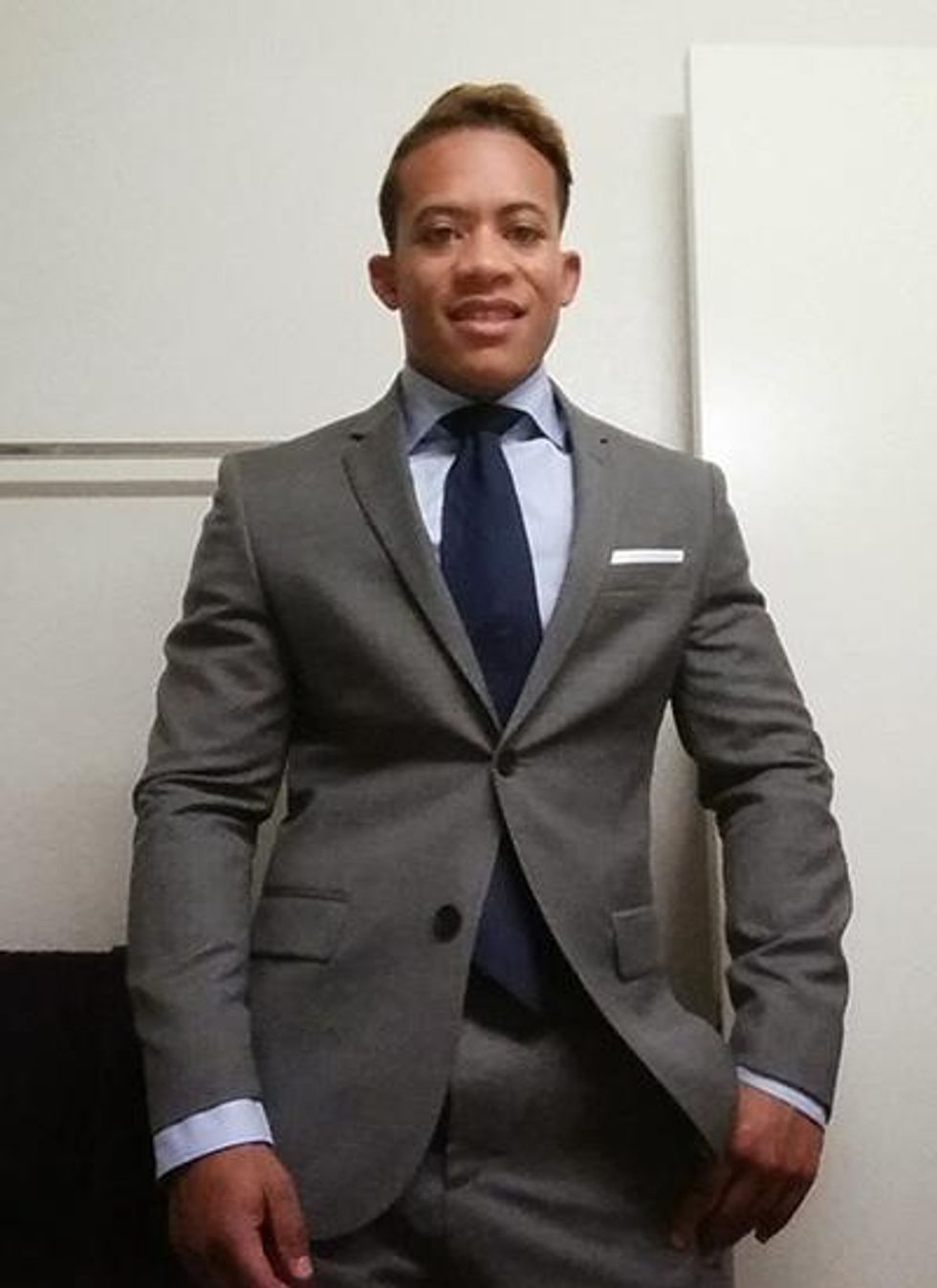 As the nation's media continues tracking down stories to satiate the current cultural curiosity about transgender Americans, we only rarely see trans men invited into the discussion. And when we do, we're most often invited to do one thing first: take off our shirts.
As the nation's media continues tracking down stories to satiate the current cultural curiosity about transgender Americans, we only rarely see trans men invited into the discussion. And when we do, we're most often invited to do one thing first: take off our shirts.
Currently, the media is only publishing and discussing "fluff" pieces about trans men -- articles about conventionally attractive men or pieces with titles like "Look at This Trans Man, He's So Hot!" or "Gorgeous Men That You Would Never Know Are Trans."
These kinds of articles project unrealistic expectations of trans men's bodies and promote stereotypes, like the false ideas that all men can grow facial hair, have binary, male-appearing chests without breasts, are muscle-bound, dress in stereotypically "masculine" clothing, or must be attractive by straight, cisgender (nontrans) standards to be deemed "desirable."
These articles are shallow -- all surface, with little depth. And when that's all the world sees of trans men, we become, in the eyes of others, less than the deep, multifaceted human beings we are.
The limited, "acceptable" topics the media will cover about trans men negate our ability to focus on the deeper, intersectional issues -- ones around race, color, class, ability, employment, and more -- that affect our everyday lives. Trans men given space in the media have a responsibility to actively address this lack.
Particularly troubling to me is the media's obsession with the ideal of hypermasculinity and traditional gender roles. Typically, the trans men we see portrayed are white and heteronormative. We often don't see men of color, queer men, or people who are nonbinary. Yet the world needs to know: these kinds of trans-masculine people also exist.
 The few trans men given space in media have a duty to acknowledge this. When offered a platform from which to speak, trans men should actively address all of our community, rather than draw attention to the top percentage that's currently popular.
The few trans men given space in media have a duty to acknowledge this. When offered a platform from which to speak, trans men should actively address all of our community, rather than draw attention to the top percentage that's currently popular.
Because what we do does affect others. When given our minute in the spotlight, trans men need to approach it with a social justice education, focusing on the intersectional issues that affect the many kinds of men, women, and nonbinary people in our communities. Otherwise, we're only talking about our perspective of society. It's a lost opportunity to open doors for those around us that we cannot afford to lose.
When handed the mike, we need to be careful to not let the media steer the conversation, because it's going to turn quickly away from the community and back to the minute details of one single transition. It devolves into sexualization and objectification of trans bodies quickly -- and away from our rights, away from the struggles we face just to be ourselves. Right now, it seems to me, we're largely allowing media to ask about our surgeries, to ask about our hormones. We need to push beyond that in our responses, even if it's not exactly answering the question asked.
And when we specifically, as trans men, say we represent the community -- which is inevitably what happens when one is given a media platform -- we need to recognize the privileges of our social class.
This means acknowledging that we're men living in a patriarchal American society that still considers being male more important than being a member of any other gender. I, for one, know what it feels like to be instantaneously valued and considered knowledgeable simply because I'm a man. I also know what it feels like to be considered "middle class," after having worked in the military for many years -- to be socio-economically better off than at least one-third of Americans. I'm able-bodied and physically fit. I'm employed in the military -- one of our nation's most profoundly trusted, diverse, and equal-paying industries.
Few other trans men, trans women, or nonbinary people inhabit the positions I do. It's the same for any trans man in the media, who most likely possesses privileged statuses beyond simply being male. The media focuses on us in part because we are "exceptions" rather than the "rule." So when we're trying to be spokespeople -- when we're standing up and talking about our personal experiences -- we also need to always be talking about the lack of access to such experiences across the board.
 If you have a seat at the table and you're not pulling the seat next to you back for someone else, what is the purpose of showing up? If you're not there to change the system of how things are usually being done, what's the point?
If you have a seat at the table and you're not pulling the seat next to you back for someone else, what is the purpose of showing up? If you're not there to change the system of how things are usually being done, what's the point?
Because when we trans men simply accept what the media gives us -- the questions about our bodies and transitions, the unchallenged inclusion of only a few kinds of men -- we're saying that we're OK with eating scraps. That we're OK with whatever is given to us, and that we won't push for change or ask for more.
That complicity tells the media that we're so used to being ostracized, marginalized, and oppressed that we'll take any little bit of acceptance we're offered. We're sending the message that it's OK to continue portraying trans men as stereotypes, as one-dimensional "fluff."
Personally, I came to these conclusions because I don't accept mediocrity as my own truth -- so if I don't accept it in my professional life in the military, why should I accept it in my public life when I'm speaking out for trans people?
All humans are undeniably entitled to dignity and respect, and we can't expect anything less. When handed a tool to help with this, we must hold the media -- but also, just as importantly, ourselves -- accountable.
Sgt. SHANE ORTEGA currently serves as a U.S. Army helicopter crew chief in Oahu, Hawaii. He is considered the first openly transgender soldier in the U.S. military. He can be reached at @OnlyShaneOrtega.
This piece originally appeared in an earlier version as a talk on the author's YouTube channel.


 As the nation's media continues tracking down stories to satiate the current cultural curiosity about transgender Americans, we only rarely see trans men invited into the discussion. And when we do, we're most often invited to do one thing first: take off our shirts.
As the nation's media continues tracking down stories to satiate the current cultural curiosity about transgender Americans, we only rarely see trans men invited into the discussion. And when we do, we're most often invited to do one thing first: take off our shirts.  The few trans men given space in media have a duty to acknowledge this. When offered a platform from which to speak, trans men should actively address all of our community, rather than draw attention to the top percentage that's currently popular.
The few trans men given space in media have a duty to acknowledge this. When offered a platform from which to speak, trans men should actively address all of our community, rather than draw attention to the top percentage that's currently popular. If you have a seat at the table and you're not pulling the seat next to you back for someone else, what is the purpose of showing up? If you're not there to change the system of how things are usually being done, what's the point?
If you have a seat at the table and you're not pulling the seat next to you back for someone else, what is the purpose of showing up? If you're not there to change the system of how things are usually being done, what's the point?

































































Charlie Kirk DID say stoning gay people was the 'perfect law' — and these other heinous quotes